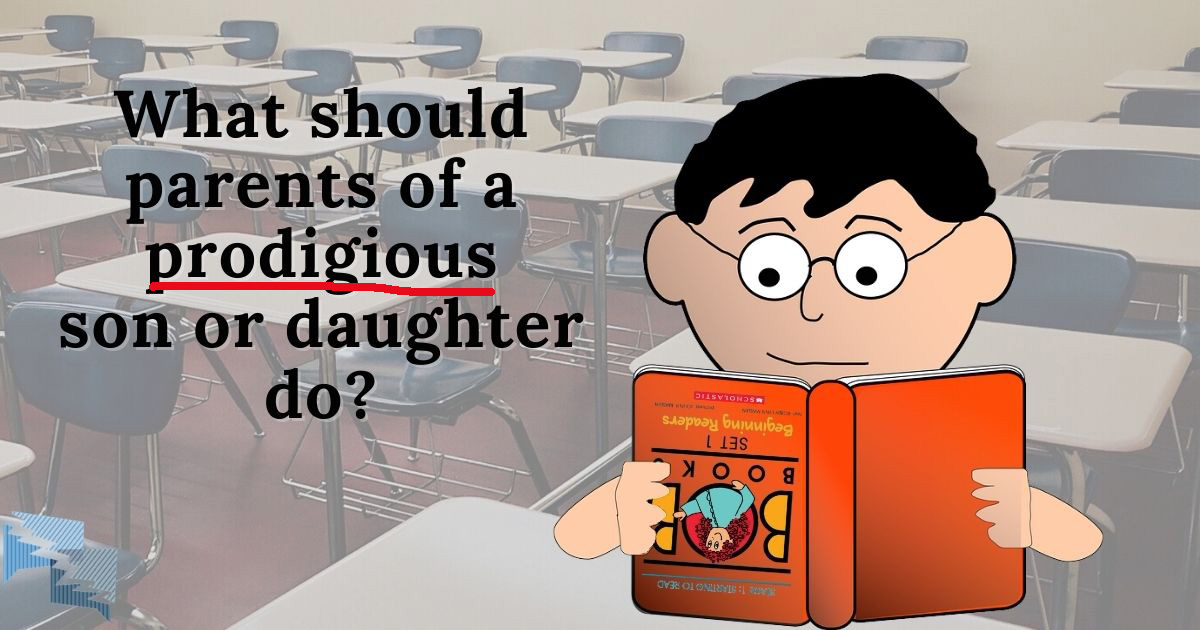
What should the parents of a prodigious son or daughter do?
The first step in dealing with a prodigious child is knowing what type of prodigiousness—if any—is at work.
First-time parents commonly think their children are prodigies. If six-year-old Charlie can count to ten in Spanish, that does not mean he's prodigious. It just means he's paying attention when you leave him in front of the TV. Public schoolteachers are especially burdened with the task of informing doting parents that their kids are not, in fact, especially prodigious.
For children who are, indeed, mentally prodigious, the best option is to support their interests and give them opportunities for enrichment (Proverbs 22:6; Ephesians 6:4). Parents of such prodigious children should also set calm, careful boundaries to prevent them from becoming arrogant or lazy. A child raised to respect their own abilities, as well as their own limitations, is less likely to become a prodigal. And, if they do, positive memories of home are more likely to bring them back.
In total contrast, some parents are in denial about their children being prodigious—as in, "enormous." Particularly in the United States, where fast food kids' meals are roughly the size and weight of cinder blocks, this can be an issue. Parents of an especially prodigious child should consider consulting with a doctor to be sure they're providing the right balance of nutrition and exercise. Make no mistake, God loves all kids, even if they're circle-sized. As should we all. But "love" does not need to be measured in pints of ice cream.
First-time parents commonly think their children are prodigies. If six-year-old Charlie can count to ten in Spanish, that does not mean he's prodigious. It just means he's paying attention when you leave him in front of the TV. Public schoolteachers are especially burdened with the task of informing doting parents that their kids are not, in fact, especially prodigious.
For children who are, indeed, mentally prodigious, the best option is to support their interests and give them opportunities for enrichment (Proverbs 22:6; Ephesians 6:4). Parents of such prodigious children should also set calm, careful boundaries to prevent them from becoming arrogant or lazy. A child raised to respect their own abilities, as well as their own limitations, is less likely to become a prodigal. And, if they do, positive memories of home are more likely to bring them back.
In total contrast, some parents are in denial about their children being prodigious—as in, "enormous." Particularly in the United States, where fast food kids' meals are roughly the size and weight of cinder blocks, this can be an issue. Parents of an especially prodigious child should consider consulting with a doctor to be sure they're providing the right balance of nutrition and exercise. Make no mistake, God loves all kids, even if they're circle-sized. As should we all. But "love" does not need to be measured in pints of ice cream.
This is what WOULD happen if GotQuestions.org genuinely, honestly answered all the mis-typed, autocorrected, or otherwise altered "spiritual" questions that come their way every day.
HOME | ABOUT | CATEGORIES | CONTACT | THE REAL SITE
© 2024 Got Questions Ministries. All rights reserved.

